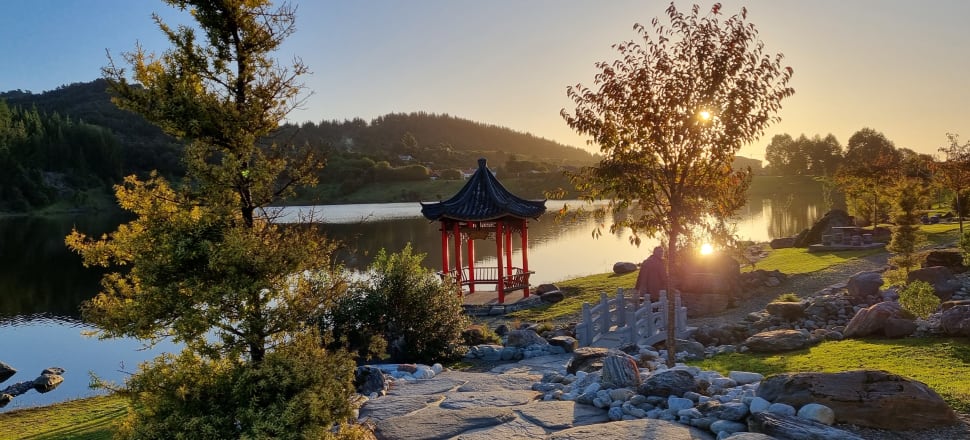
The arrival on the West Coast of gold miners from China more than 160 years ago has been marked at an event at Ross marred by one man’s antics
It’s been more than 10 years in the making but a memorial garden to honour the work of Chinese gold miners on the West Coast has formally opened in the small town of Ross.
More than 100 people including iwi, diplomats and a large contingent from New Zealand’s Chinese community gathered in Ross at the weekend to celebrate the completion of the gardens project.
Cherry trees, flax and golden tōtara now beautify the banks of a former mine pit transformed into a tranquil lake.
Paths meander from a portico guarded by fierce stone lions to a tiny willow-pattern bridge and a bright red and yellow liang-ting, or pagoda, at the water’s edge.
Stone tables and seats overlook the peaceful scene.
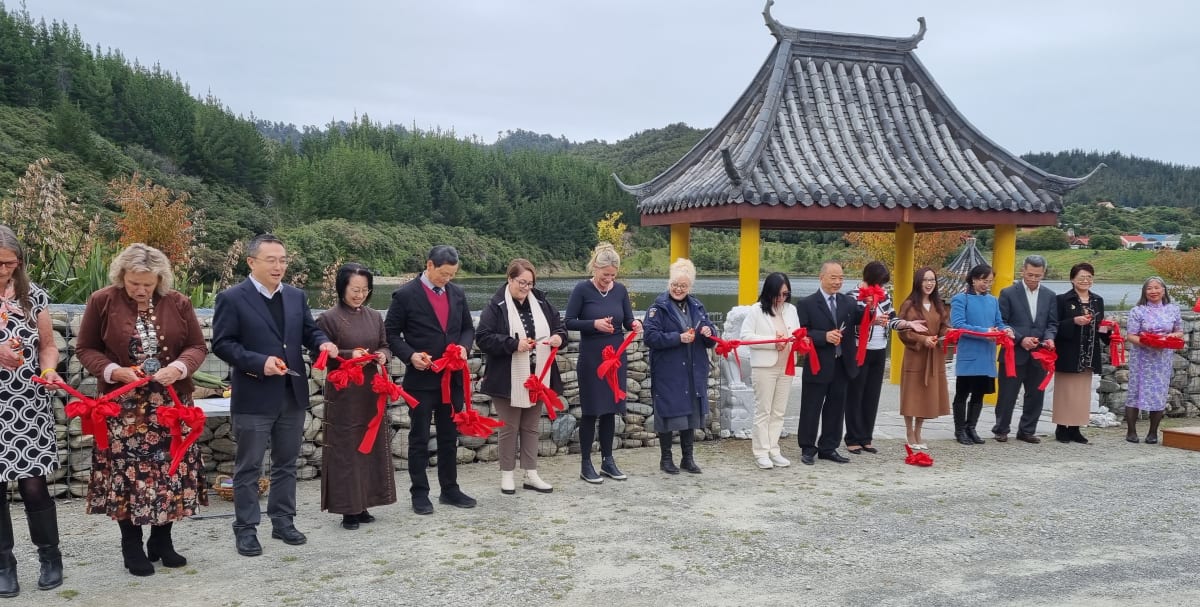
And in the autumn sunlight on Saturday, the surrounding hills echoed for the first time in 150 years to korero in Chinese and te reo.
The first shipload of Chinese miners to arrive in Hokitika in the 1860s were confronted by a delegation of annoyed mana whenua who were not inclined to let the strangers disembark.
But that’s ancient history, said Richard Wallace, the Anglican Bishop of Te Wai Pounamu, who blessed the gardens.
“The first gold in these parts was found by a Māori, a man called Tamihana , in the Totaara River. But a European man called Hunt claimed the credit. Then so many poured in - our people were pushed aside.
“We can’t wash away history but we are people who hold our history with love and understanding.”
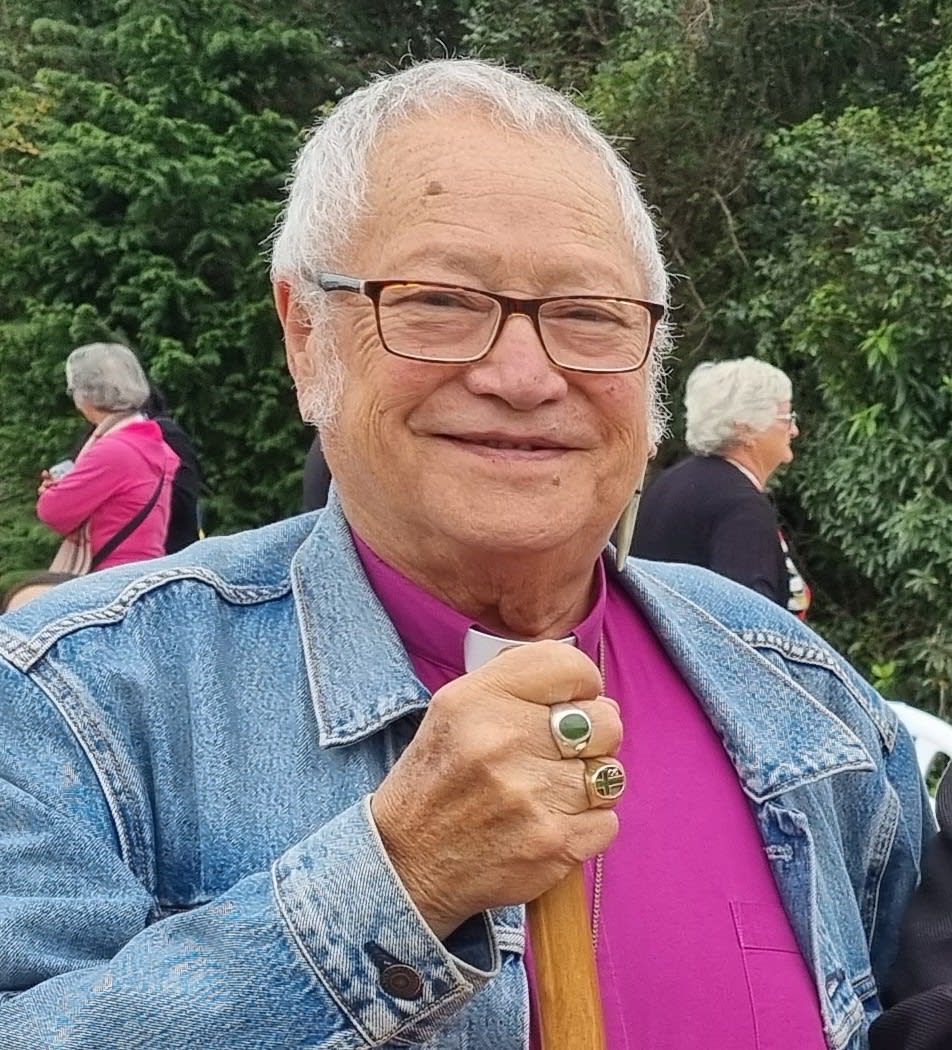
Recalling the 1902 wreck of the SS Ventnor with the loss of 499 Chinese coffins, the bishop said it was sad the remains of many miners failed to make it back to their homeland.
“They were manuhiri … here for a while. May their spirits have returned home. We farewell them to a place of peace.”
One-man campaign
The creation of the memorial gardens has not, however, been an entirely peaceful process.
The project has been driven by a small group of volunteers led by Ross woman Biddy Manera, a sixth-generation descendant of European gold miners.
Despite strong support from Ross residents, the Chinese community, the Westland District Council, the Department of Conservation, the Corrections Department and local school children, the volunteers’ work has been sabotaged by the antics of one man.
Peter Cornish, who runs a gravel operation in the hills above the lake and gardens, appeared in court in June and November last year charged with intentional damage to trees planted by Manera and her group in a neighbouring reserve.
Cornish denied the charge and the judge will release her decision next week.
Manera says her group has complained to the police numerous times about Cornish’s behaviour.
Photos and videos taken covertly by the volunteers show Cornish dismantling a weir they built to stop the lake flooding; moving road-safety cones; and tearing up hazard tape placed to protect the public at the gardens work site.
“The only thing he’s ever been charged with is damaging the trees,” Manera says.
“It’s disheartening but we were never going to give up. We have no idea why he does this stuff. No one seems willing to challenge him.”
Attempts by Newsroom to contact Cornish have been unsuccessful.
At Saturday’s event, with the lake road closed by the council and dignitaries and public seated for the ceremony, Cornish’s ute sped downhill towards the crowd swerving at a row of road cones and revving up cross-country into a DoC reserve opposite the gardens.
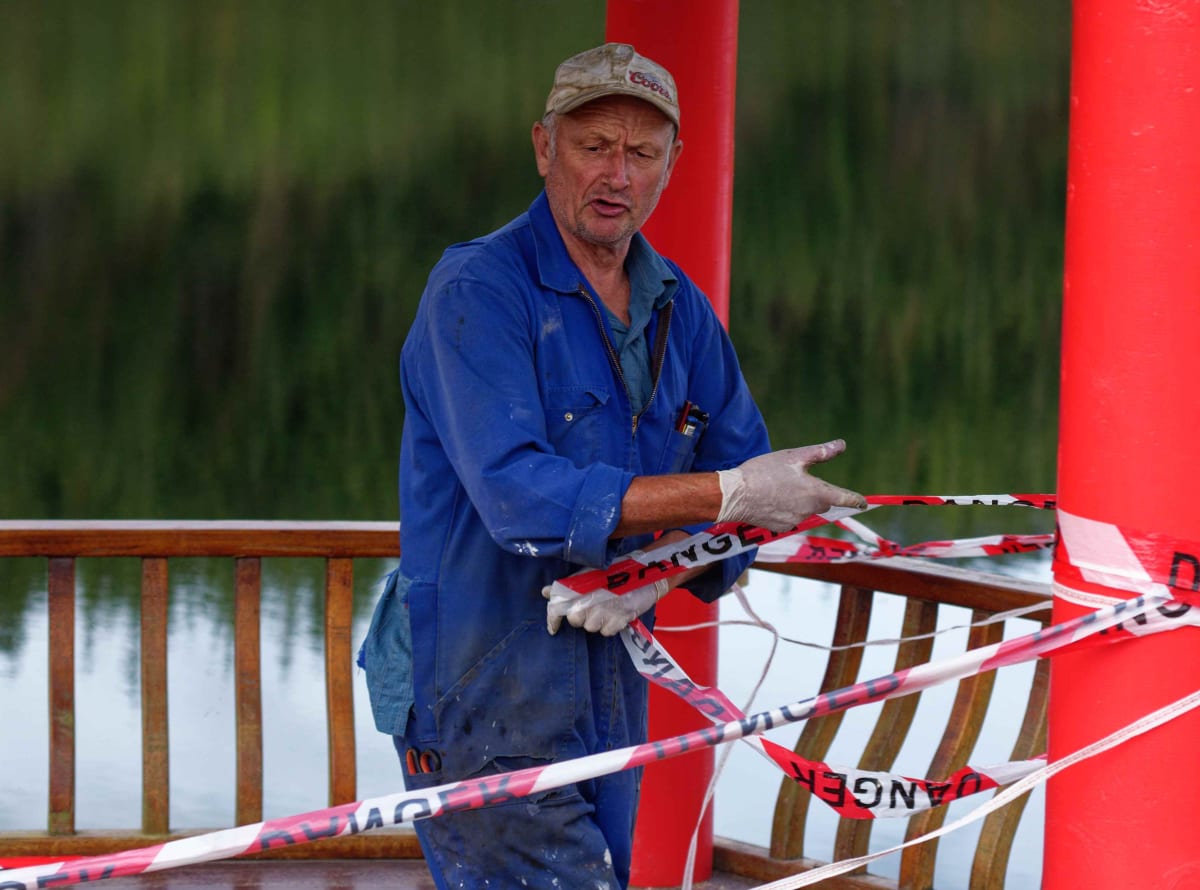
As Wallace began his blessing a drone suddenly whined overhead then stopped abruptly alarming event organisers.
The bishop continued his whakatau unfazed.
“I won’t need to mention that noisy vehicle, the person that drives that around - it’s been a bone of contention in this whole project and it doesn’t need to be.
“I want to say, for our iwi, we have a ngākau māhaki - a peaceful heart.”
Invoking Rewi Alley
Other speakers including Chinese Consul-General Madam He Ying paid tribute to those who gave time and money over the past decade to fund the memorial gardens.
Generous donations from Chinese business people and organisations paid for the picturesque pagodas and stone lions but the hard work of the Ross community and Manera would never be forgotten, she said.
“In 1927, a famous South Islander, Rewi Alley, went to China and devoted his life to the people and the revolution.
“Friendship between China and New Zealand has brought many tangible benefits. We hope the gardens project will embody that friendship and promote it further.”
Manera and her team can now look forward to a breather: the Corrections Department has committed to maintaining the gardens for the next 10 years.
Simon and Sandra Tam, who both work for Corrections, have had a hand in supplying labour over the years through community-service teams.
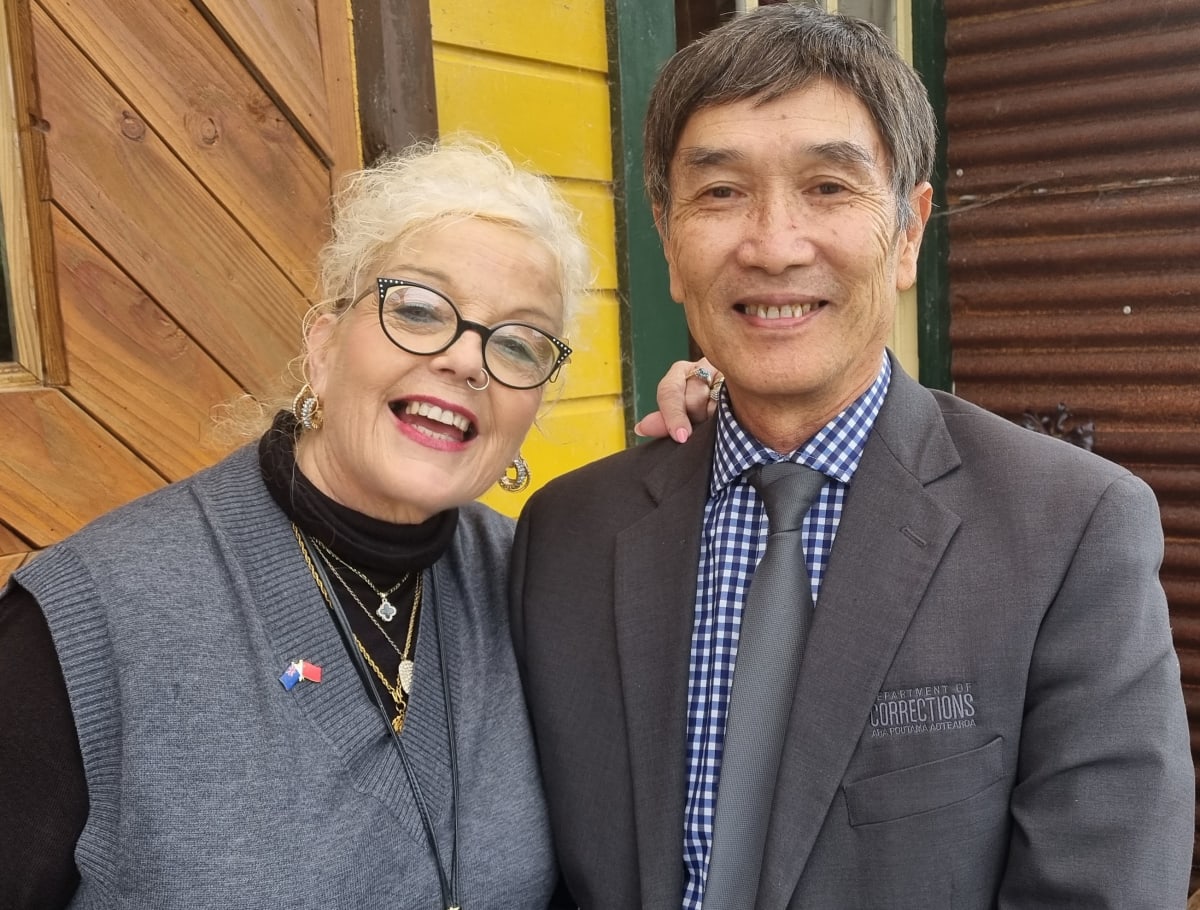
Canton-born Simon says Manera’s dedication in the face of serious harassment has been impressive.
“Should that continue, we will have to get some people from the Chinese community to come down and have a talk to the person causing these problems and there might be legal action.”
And if it’s Corrections gathering the evidence and making the complaints, the authorities will surely take notice and put a stop to it, Sandra Tam says.
Manera says her group is enormously grateful for the community and Corrections support but she won’t be stepping back from the Chinese Miners Memorial Gardens project any time soon.
“I’ve got Italian and Irish blood running through my veins. I was raised on a farm with five brothers and I’m not scared of a scrap,” she says.
Made with the support of the Public Interest Journalism Fund








